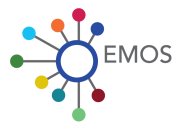The Department of Economics and Management of University of Pisa and the Laboratory of Economics and Management of Sant’Anna School of Advanced Studies have developed a challenging two-year Master of Science Program in Economics (Laurea Magistrale in Economics).
The Master Program provides students with an advanced training in economics supported by the complementary quantitative and statistical tools. The central aim of the program is to enhance the abilities of students of analyzing economic phenomena at different levels: firm, industry, national and international. This range of skills represents the ideal foundation for the development of professionals able to interpret the fast-changing economic environments of the 21st century.
This two-year degree is designed for students aiming at knowledge intensive careers in dynamic firms, banks and corporations, consultancies and public organizations. It offers a solid foundation for those willing to pursue an academic career in the field of economics or other professional activities characterized by a strong research content.
MSE offers three curricula: GENERAL ECONOMICS, OFFICIAL STATISTICS and QUANTITATIVE FINANCE.
Official Statistics has been recently awarded by the European Commission with the label EMOS (European Master in Official Statistics). Full information on the program and on the curricula can be found here.
The Faculty of the program has attained an outstanding international reputation for research excellence in many areas of economics. The Master degree (Laurea Magistrale) is jointly awarded by University of Pisa and Sant’Anna School of Advanced Studies.
The admission to the Master is subject to an assessment of the curriculum provided by applicants. For detailed information see here.
MSE programs aims to intensify the presence of foreign students in our Department and stimulate our students to live, study and work in an international context. We provide services and advice to international students.
MSE Staff
Dipartimento di Economia e Management
Via Ridolfi 10 Pisa, Italy
mse@ec.unipi.it
Latest News
MSE Double Degree Call a.y. 2024/25
Double Degree Call a.y. 2024/25 Selection for n. 5 MSE students (curriculum OS), participating in the Double Degree Program with…
Coding lab for EMOS students
The deadline for applications for the Coding lab for EMOS students is fast approaching. Students are invited to participate in this unique…
ISTAT TRAINEESHIP CALL FOR THE A.Y 2023/24
The National Statistical Institute has recently pubblished the call for the traineeship for the next year: https://www.istat.it/it/amministrazione-trasparente/bandi-di-concorso/tirocini-formativi-curriculari The deadline to…
The new series of the EMOS webinars
The new series of the EMOS webinars will be kicked off. This webinar series is organised in cooperation with the…
50 traineeship opportunities in statistics and data science at the European Central Bank
The European Central Bank have just published 50 traineeship opportunities in statistics and data science on the ECB job portal reserved to EMOS…
Videorecorded preparatory courses in statistics and mathematics
Videorecorded preparatory courses in statistics and mathematics, useful to help first year students in obtaining the necessary knowledge to attend…


